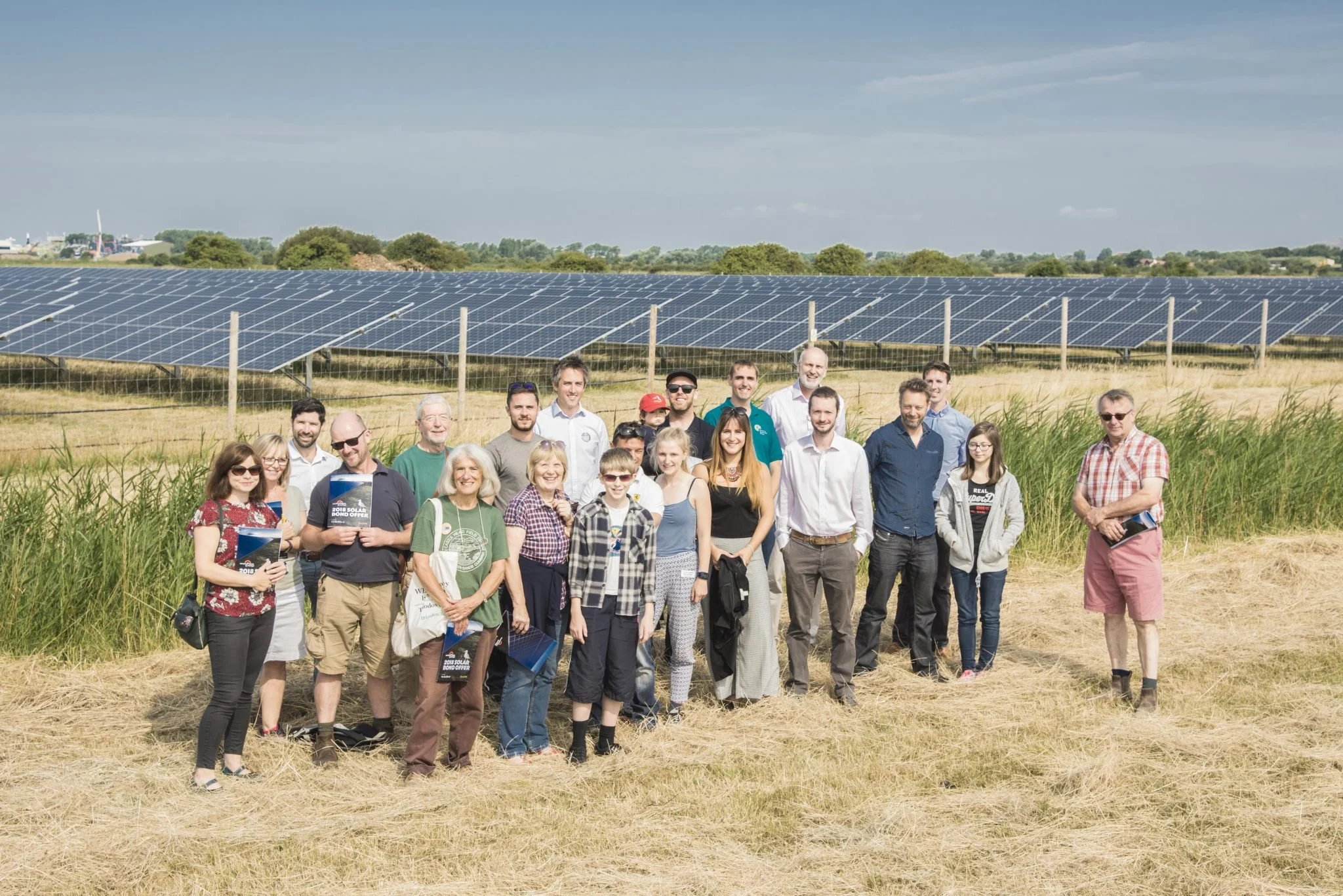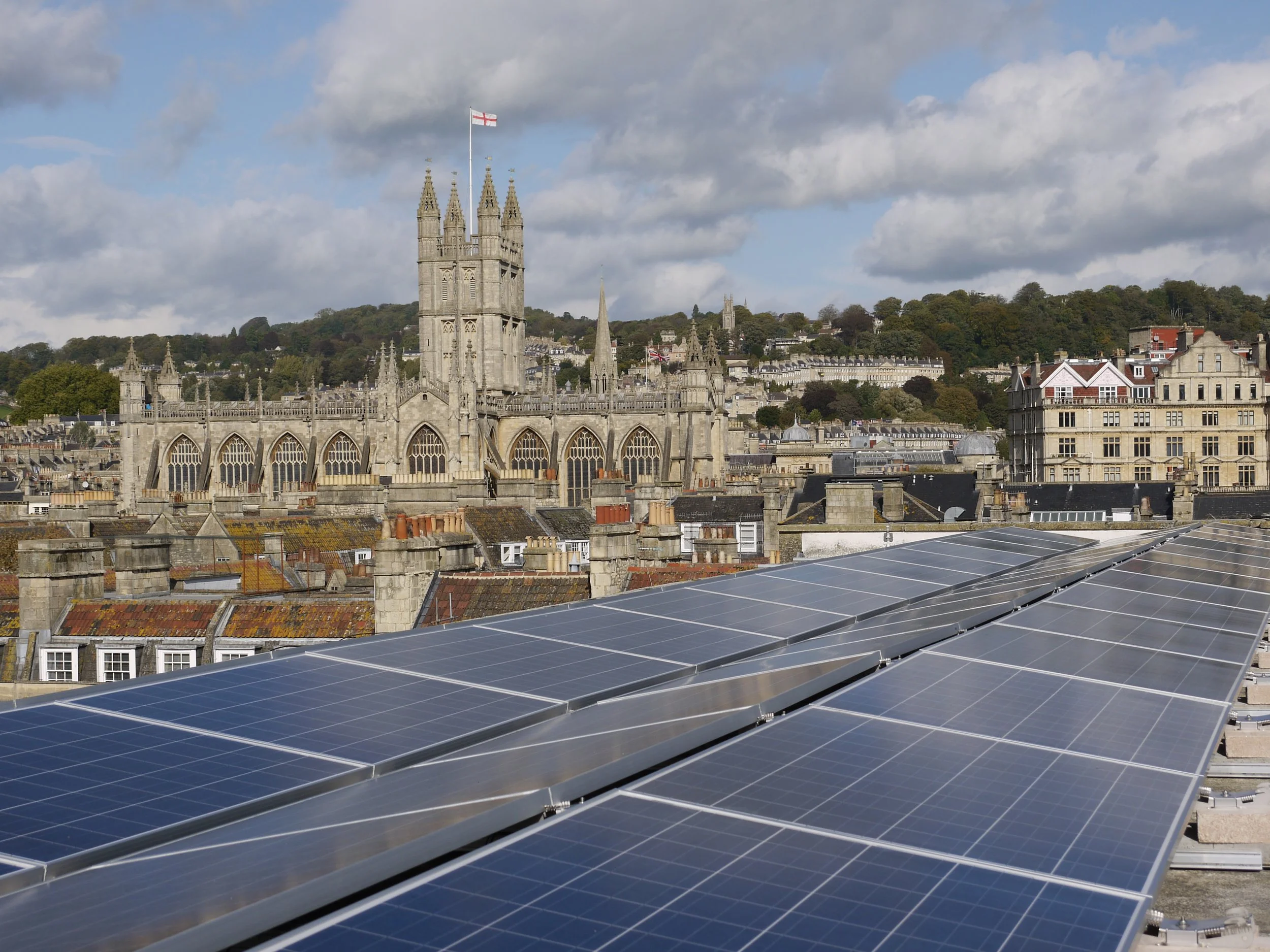The Local Electricity Bill: An Appeal to Councillors for Support
The Local Electricity Bill is currently before Parliament, with the backing of 326 MPs. 112 Local Authorities across England, Scotland and Wales support it. Will you please join them?
Community energy could grow twentyfold nationwide, meaning local schemes powering your area’s homes and businesses with clean, affordable electricity.
If achieved, this growth would take community-owned and run renewable energy generation to 10% of UK electricity generation (around 6,000 megawatts), powering 2.2 million homes and saving 2.5 million tonnes of CO2 emissions every year [1].
However, community energy has seen minimal growth in recent years.
It currently accounts for less than 0.5% of total UK electricity generation capacity (standing at only 331 megawatts in 2021) [2]. It would be hard to imagine a greater failure of potential.
Image courtesy of Burham and Weston CIC
Why? This potential is being blocked because current energy market and licensing rules inhibit schemes from selling their electricity to local people.
An in-depth report by the Institute for Public Policy Research states that the financial, technical, and operational challenges involved in setting up a licensed energy supply company mean that initial costs exceed £1 million, despite the size or energy output of the scheme. [3]
Let’s illustrate this in lay terms: imagine someone setting up a microbrewery, planning to deliver their beers to local pubs, and offices (thus cutting down transport costs, CO2 emissions and price charged to consumers) and then being told that they must pay £1 million in road tax for their delivery van because it will use the national road network. The business would never be started. This is the reality for community energy.
The solution? Government should adopt the Local Electricity Bill, as recommended by the 2023 Net Zero Review
Small-scale renewable energy generators need to receive a guaranteed, fair price for the electricity they contribute to an energy system in desperate need of homegrown energy. Community energy schemes in particular should also be enabled to sell their power to local households and businesses.
This was the leading recommendation for community energy in the January 2023 government-commissioned Net Zero Review, authored by Rt Hon Chris Skidmore MP. It affirms that, “Community energy projects not only contribute to net zero but are a distilled example of energy security and sovereignty” and recommends that, “Government should commit to the Local Electricity Bill that would enable community energy projects to provide energy directly to local households and businesses.” [4]
This would have a transformative impact for your area, including:
Reduced energy bills and fuel poverty relief through the provision of cheaper electricity and new energy efficiency initiatives
Thousands of new jobs associated with the construction and maintenance of the schemes
New funds generated for local initiatives
Boosted local economic activity
Greater energy security through reducing dependence on imported energy and increasing the resilience of our domestic supply
Enhanced community cohesion with local people understanding, owning and controlling their energy assets, including where the economic benefits are targeted
The Local Electricity Bill would enable this by establishing a:
A Community Electricity Export Guarantee: a right for sites that generate low carbon electricity with a capacity below 5 megawatts to export their electricity to an existing electricity supplier on fair terms
A Community Electricity Supplier Services Scheme: a requirement on existing larger suppliers to work with community energy schemes to sell the power they generate to local customers. Existing suppliers can charge a fee for doing this, but that fee must be reasonable
If made law, the Bill would ensure small-scale renewable energy sites have a guaranteed and fair income, enabling them to raise funds to expand existing projects and establish new ones. The Bill would also enable community energy sites to set up financially viable local supply businesses that could offer local people more affordable, clean electricity, with the profits from their energy bills being used for community benefit.
The Bill can be viewed here and the MPs, Councils and organisations supportive of it are listed here.
Image courtesy of Bath & North East Sommerset Council building Lewis House
What about the Local Authorities that tried but struggled to run their own energy companies?
Some local authorities have made well-intentioned efforts to make the energy system work for the benefit of their constituents, but have ultimately struggled to do so. These efforts have been blocked or greatly hampered by the fundamental flaws in the energy system. The market rules that govern it lead to huge bureaucratic and cost burdens on any attempt to supply locally generated energy to local households and businesses, no matter what the size of the generation scheme. This disproportionality is stifling growth and it is precisely what the Local Electricity Bill is designed to fix.
Local economies benefiting from local energy has happened before…
Many local facilities across the UK such as parks, swimming baths and libraries were built from revenues of municipal energy companies in the 19th and early 20th centuries. [5]
This is happening today, albeit to a limited extent (because of the hurdles to local supply indicated above): In 2019, the small number of community energy groups across the UK helped save an estimated £3.35 million from people’s energy bills [6]. This figure will multiply manyfold if the Bill is enacted, helping to revitalise communities across the country.
Passing a motion of support and calling on the Government to support the Bill would help unlock these transformative benefits for your area.
A draft motion can be viewed below:
Please contact info@powerforpeople.org.uk for further information.
[1] The Department for Energy and Climate Change; Community Renewable Electricity Generation; January 2014
[2] Community Energy England; Community Energy State of the Sector Report 2022; https://communityenergyengland.org/pages/state-of-the-sector
[3] Institute for Public Policy Research; Community and local energy: Challenges and opportunities; June 2016; https://www.ippr.org/publications/community-and-local-energy-challenges-and-opportunities
[4] Rt Hon Chris Skidmore MP; Mission Zero: Independent Review of Net Zero; January 2023; https://assets.publishing.service.gov.uk/government/uploads/system/uploads/attachment_data/file/1128689/mission-zero-independent-review.pdf
[5] Professor Robert Millward; The Cambridge Economic History of Modern Britain, Volume 2, 1870 to the Present; Chapter 15 – The Growth of the Public Sector
[6] Community Energy England; Community Energy State of the Sector Report 2022; https://communityenergyengland.org/pages/state-of-the-sector


